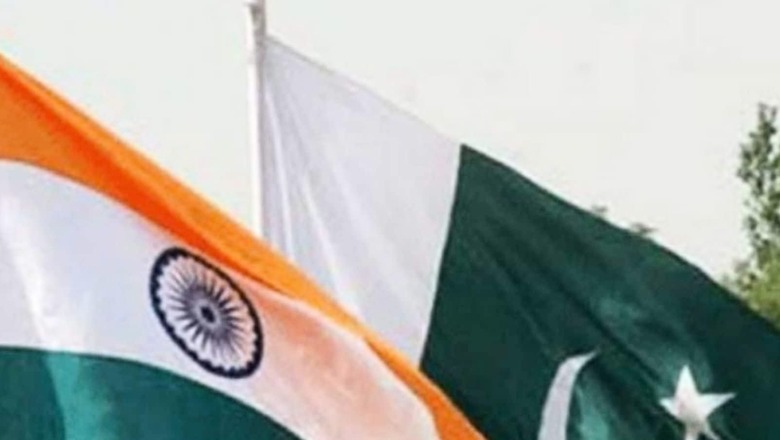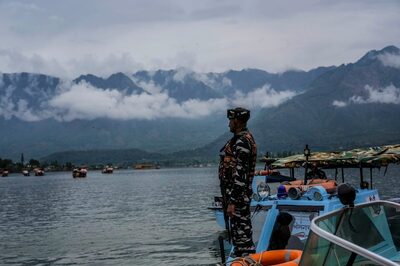
views
In recent weeks, there are straws in the wind that suggest India might be working on a new policy or at least rethinking her approach towards the AfPak (or is it PakAf or even Af&Pak?) region. That there isn’t any unnecessary hype being generated over the ‘initiatives’ or outreach could be because these are ‘feelers’ sent to signal a readiness to engage. Perhaps they are being deliberately underplayed as a guard against the usual spoilers. Surprisingly, even the media which is quick to pick up anything on the India-Pakistan front or even the India-Afghanistan front hasn’t really gone ballistic, not yet anyway.
In September, a team of Under-12 tennis players landed in Islamabad to compete in an Asian tournament. Beginning October, a team was sent as observers for an anti-terror exercise being held in Pakistan under the Shanghai Cooperation Organisation (SCO) framework. The decision to send this team was taken at the highest levels in the government despite the reservations in the Ministry of External Affairs. A few days later, it was reported that in August an invitation had been extended by the Lok Sabha Speaker to the chairman of the Pakistani Senate Sadiq Sanjrani to attend the centennial celebration of the creation of the Public Accounts Committee of Parliament. Strange choice, considering that it would have been more appropriate to invite the National Assembly Speaker. Maybe Sanjrani was invited because he is seen as a proxy of the Pakistan Army and isn’t a member of the ruling PTI.
Within days of this report, there was news of BCCI president Saurav Ganguly meeting his Pakistani counterpart informally and even inviting him for the IPL final. Strange once again, considering that IPL doesn’t allow Pakistani players to play in the tournament. Even stranger, considering that Ramiz Raja has publicly declared that he is plotting against the BCCI and is trying to form an alternate bloc to counter Indian domination. Later it became known that the Asia Cup was going to be hosted by Pakistan in 2023. Again strange, considering that New Zealand and England had just refused to play in Pakistan owing to security considerations. What is more, India playing in Pakistan even in an international tourney would go against government policy. And yet Ganguly signed on to the Asia Cup in Pakistan?
ALSO READ | After Savouring Moment of Triumph, Pakistan Will Now Face Moment of Truth in Afghanistan
Finally, there was news that India was planning a conference on Afghanistan of National Security Advisors of key regional players to discuss humanitarian assistance and security issues. Included in the invitation list was the Pakistani NSA. Soon after this news, there were reports that India was planning to send 50,000 tonnes of wheat and medical assistance to Taliban-controlled Afghanistan as part of its humanitarian assistance to that country.
Now, unless someone believes that these are just a series of coincidences, they look to be pointers to something that is ticking in the minds of Indian policymakers on exploring new options and creating new opportunities in the AfPak region. To put it differently, India might be exploring the diplomatic and political space between ‘masterly inactivity’ and a ‘forward policy’ to expand its policy options in the region.
Afghanistan Conference without Taliban
All of this is fine, but it also raises some serious questions, not the least of which is whether whatever is going on in the minds of the makers of high policy has been thought through. Or is it that as is our wont, it has been thought through up to a point—one or two steps—after which things will be decided as we move along? For instance, what is the idea of a conference on Afghanistan in which someone from the Taliban isn’t invited? Isn’t it a bit like staging Ramayana without Ravana, or the Mahabharata without Duryodhana? That India considers the Taliban anathema is no secret. But that hasn’t stopped India from engaging the Taliban. Engagement isn’t bestowing legitimacy or respectability, much less recognition. If indeed India wants to get a toe hold in Afghanistan, it needs to start playing this game like other countries, such as Russia, Iran and Central Asian states, which have been engaging the Taliban without recognising their regime.
There are however two problems in inviting the Taliban. One, domestic politics. Taliban is a four-letter word in India and it will be difficult for the government to explain an invite to a Taliban leader. Two, who in the Taliban to invite—Deputy Prime Minister Mullah Baradar, Foreign Minister Amir Khan Muttaqi or his deputy Sher Mohammad Stanikzai. Ideally, India would like to engage with the Taliban who aren’t Pakistani proxies like the Haqqanis or their gang. But who the Taliban nominate, if they are invited, will also be important in knowing who is calling the shots in Kabul and Kandahar. Equally important, India needs to be clear about why it is calling the conference.
Is it only for humanitarian purposes and for trying to forge a regional consensus? Is it for exploring if India can do business with Taliban? Is it to assess if the Taliban remain lackeys of Pakistan or are going to assert their autonomy and independence? Is it to test the Taliban demand for land access to India and to push the envelope on sending Indian goods to Afghanistan through land, something that Pakistan has not allowed so far? If Pakistan continues to block access to India, how will this play out with the Taliban? Or is India only trying to regain some relevance in the region?
The last is the worst reason because it shows that in just over two months since Kabul fell to the Taliban and Pakistan, India is starting to suffer from FOMO. But ‘missing out’ of what? Somehow this question hasn’t been asked enough in India, much less answered. Wannabe great powers need to show greater staying power, more strategic patience. They shouldn’t be in a hurry to reverse policy and principle merely because it’s the fashion, but only if this change is part of a policy to catalyse something instead of waiting for things playing themselves out.
ALSO READ | Kashmir Bloodbath: Our Silence is Their Licence to Kill
Why the Outreach to Pakistan?
The outreach to Pakistan raises even more questions. It isn’t clear if this outreach is only in the context of Afghanistan or there is something more to it—a bilateral thaw perhaps? Coming as it does when there is spike in terrorism, which can be traced back to Pakistan, does it mean the Indian government is once again de-hyphenating terrorism in Kashmir with rest of the bilateral relationship? The reason why this question arises is because there are a number of officials in the Indian system who are once again parroting that banal cliché of Pakistan being a neighbour and that we will need to engage it at some level and reopen a dialogue with it. It isn’t quite clear where this talk is coming from: is it something that is being felt by people within the system on the direction in which people at the top are leaning, or is it just fatigue, even ennui, with the current policy? In either case, it will tantamount to repeating the blunders of the past.
It is of course possible that some back-channel is already active and the initiatives that have been taken are actually part of a choreography, or even proof of intention. But even if that’s the case, it is of little comfort. Such tactical and cosmetic steps might create a temporary thaw, but they don’t lead to any breakthrough because the fundamentals haven’t changed. There is absolutely no sign of a paradigm shift in the Pakistani calculus, all the nonsense of geo-economics notwithstanding. To fall for the ‘pleasant lies’ being spouted by the Pakistani generals even though they continue to do what they have always been doing in Kashmir and other parts of India and around India is a folly. The only thing that can be said is that it isn’t a folly we haven’t made before, and it won’t be a folly we won’t make again. In a word, global climate may change, but the circularity of India’s policy on Pakistan never changes.
The author is Senior Fellow, Observer Research Foundation. The views expressed in this article are those of the author and do not represent the stand of this publication.
Read all the Latest News , Breaking News and IPL 2022 Live Updates here.



















Comments
0 comment